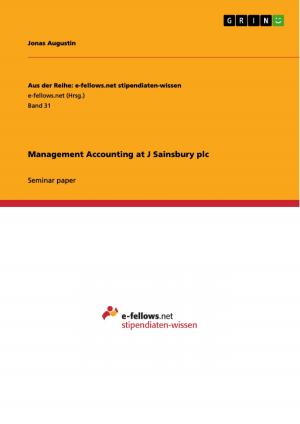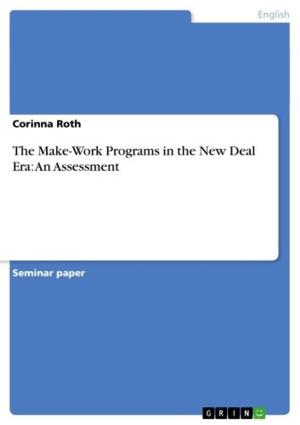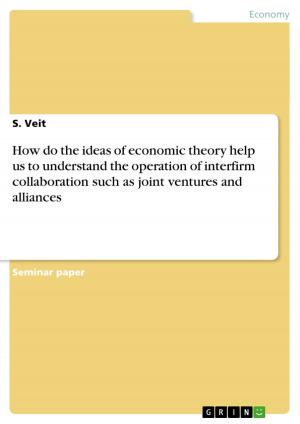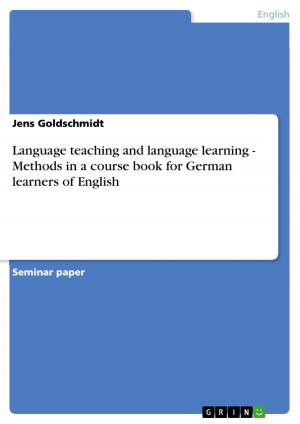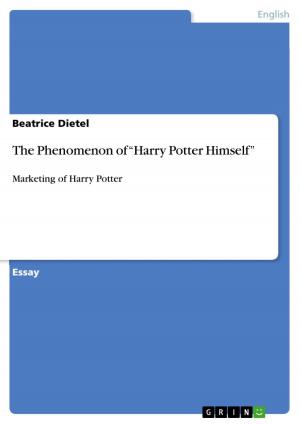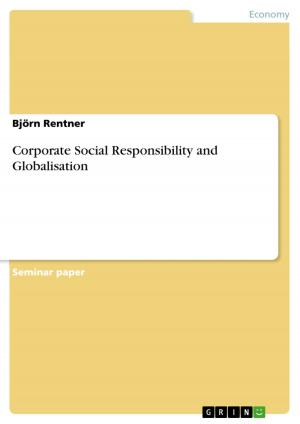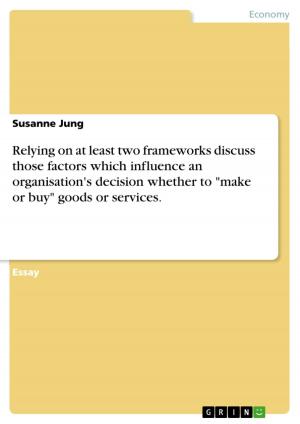Germany and the enlargement of the EU - An impact analysis
An impact analysis
Nonfiction, Social & Cultural Studies, Political Science, Politics, Economic Policy| Author: | Alexander Dürr | ISBN: | 9783638334471 |
| Publisher: | GRIN Publishing | Publication: | December 29, 2004 |
| Imprint: | GRIN Publishing | Language: | English |
| Author: | Alexander Dürr |
| ISBN: | 9783638334471 |
| Publisher: | GRIN Publishing |
| Publication: | December 29, 2004 |
| Imprint: | GRIN Publishing |
| Language: | English |
Seminar paper from the year 2004 in the subject Business economics - Economic Policy, grade: 2,3 (B), Leeds Metropolitan University, course: EU Policy & Business, 16 entries in the bibliography, language: English, abstract: 1. Introduction For many centuries Europe was torn by the antagonism of power. During the world wars a united Europe seemed like an inconceivable illusion. But utopia became reality. Now, 15 years after the fall of the Berliner wall Eastern countries are joining the European Union. The EU enlargement on 1 May could be the beginning of a modern fairy tale. On this day the European Union opened its doors to another 75 million people from the 10 new member states of southern Cyprus, the Czech Republic, Estonia, Hungary, Latvia, Lithuania, Malta, Poland, Slovakia and Slovenia. Never before in its long history has Europe been more united than nowadays. (Warren, 2004) With a total population of approximately 450 million people the EU has created the world`s largest single market which will have a enormous impact on the world market as well as on the markets of the old member states. (MDR, 2004) The EU enlargement obviously impacts the established political order of the EU, however it is now - despite doubtlessly existent risks - broadly seen as a great chance in a political, economical and also very much in a cultural way. There has been a big discussion involving all different levels of society and politics about where this is going - and where it will all end. (Wallendorf, 2004) This work will focus on Germany as an old member of the European Union and examine the extent to which the benefits of the 2004 enlargement outweigh the disadvantages. Due to the word limitation the major issues will be mentioned but the attention will focus more on the implication for the German economy, although the issues sometimes interact each other it is not always possible to separate them. The agriculture sector will be left out of consideration. The pictures used in this report are taken from the official homepage of the German Government and the European Commission. [...]
Seminar paper from the year 2004 in the subject Business economics - Economic Policy, grade: 2,3 (B), Leeds Metropolitan University, course: EU Policy & Business, 16 entries in the bibliography, language: English, abstract: 1. Introduction For many centuries Europe was torn by the antagonism of power. During the world wars a united Europe seemed like an inconceivable illusion. But utopia became reality. Now, 15 years after the fall of the Berliner wall Eastern countries are joining the European Union. The EU enlargement on 1 May could be the beginning of a modern fairy tale. On this day the European Union opened its doors to another 75 million people from the 10 new member states of southern Cyprus, the Czech Republic, Estonia, Hungary, Latvia, Lithuania, Malta, Poland, Slovakia and Slovenia. Never before in its long history has Europe been more united than nowadays. (Warren, 2004) With a total population of approximately 450 million people the EU has created the world`s largest single market which will have a enormous impact on the world market as well as on the markets of the old member states. (MDR, 2004) The EU enlargement obviously impacts the established political order of the EU, however it is now - despite doubtlessly existent risks - broadly seen as a great chance in a political, economical and also very much in a cultural way. There has been a big discussion involving all different levels of society and politics about where this is going - and where it will all end. (Wallendorf, 2004) This work will focus on Germany as an old member of the European Union and examine the extent to which the benefits of the 2004 enlargement outweigh the disadvantages. Due to the word limitation the major issues will be mentioned but the attention will focus more on the implication for the German economy, although the issues sometimes interact each other it is not always possible to separate them. The agriculture sector will be left out of consideration. The pictures used in this report are taken from the official homepage of the German Government and the European Commission. [...]


